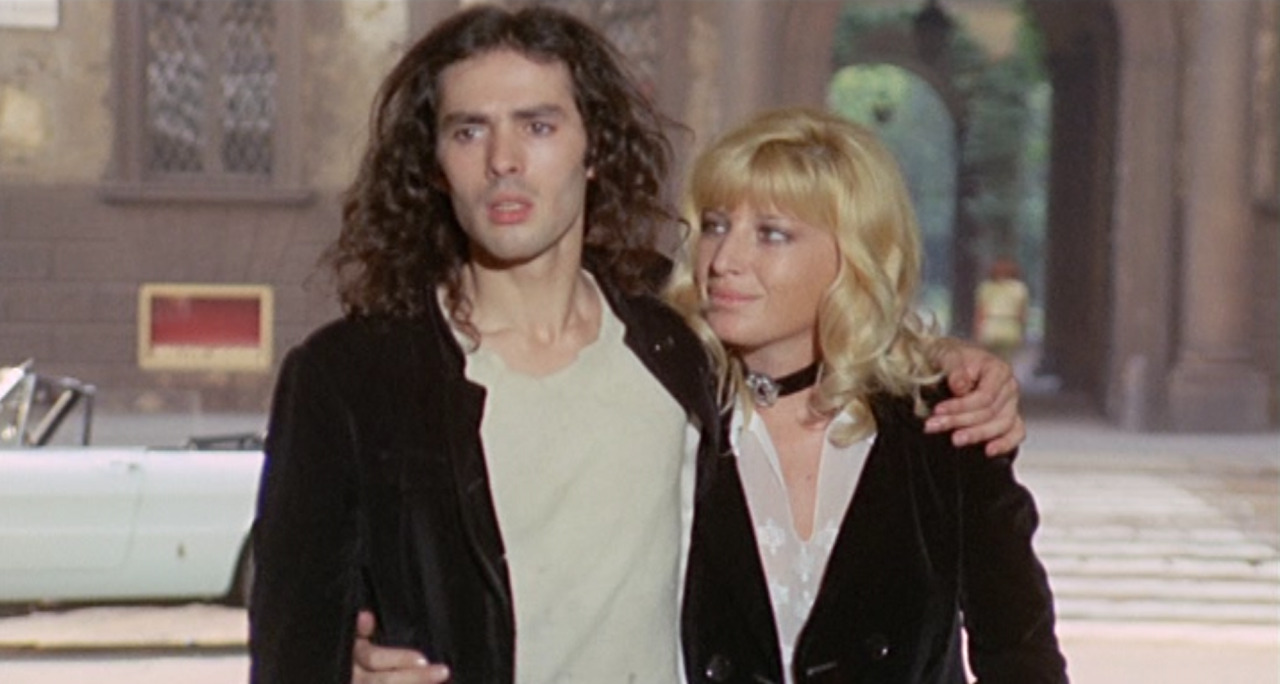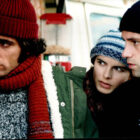“The Pacifist” (original title: “La pacifista”), directed by the renowned Hungarian filmmaker Miklós Jancsó. A cinematic masterpiece that echoes the anti-violence sentiments of its time, set against a backdrop of social-political tensions.
Released in 1970, the film stars Monica Vitti, one of the most iconic faces of Italian cinema, who delivers a nuanced performance as a character caught in a spiraling series of events that explore the complexities of pacifism and violence. The plot revolves around the character of Barbara (Monica Vitti), a journalist who embraces the cause of peace during a historical period marked by political protests
and social tensions. Driven by her moral conscience and determination to fight against injustice, Barbara plunges into a world of militants and ideologies. The film navigates the complexities of her pacifist mission and the brutal realities of the world around her. Highlighting the contradictions and moral dilemmas that arise when confronting a violent society.
Miklós Jancsó, known for his unique visual style and innovative directing techniques, utilizes in “The Pacifist” a series of long takes and fluid camera movements. Emphasizing the tense atmosphere and sense of uncertainty pervading the story. His skill in creating precisely choreographed scenes and his ability to use space symbolically are evident in this film, which becomes a powerful visual and narrative commentary on the dynamics of power and rebellion. One of the most intriguing aspects of “The Pacifist” is how Jancsó portrays Barbara’s inner struggle. Through her interactions with various characters – friends and antagonists – a complex portrait of her personality and convictions emerges. The film does not offer easy answers but invites viewers to reflect on the ambiguities of pacifism and the difficulties of
upholding ideals of peace in a world often dominated by violence.
The soundtrack, composed by Piero Piccioni, adds another layer of emotional depth to the film. The music, often melancholic and reflective, underscores Barbara’s internal tension and amplifies the impact of her experiences on the viewer. Piccioni, with his typical style, blends jazz and orchestral melodies, creating a soundscape that perfectly matches Jancsó’s visual aesthetics. “The Pacifist” is not an easy film; it requires attentive viewing and deep reflection. It stands at the crossroads between politically engaged cinema and experimental visual art, inviting the public to grapple with themes of great current importance and relevance.
The collaboration between Miklós Jancsó and Monica Vitti results in a film that is a powerful
testament to their artistic commitment and their ability to delicately and precisely handle
complex themes. Ultimately, “The Pacifist” remains relevant today, offering a profound and complex vision
of the struggle for peace and resistance against violence. It is an example of cinema that
not only entertains but elevates and stimulates debate, making it an essential work for
anyone interested in auteur cinema and socio-political issues.
Watch the movie on Movieitaly+
Read more articles on our website!






